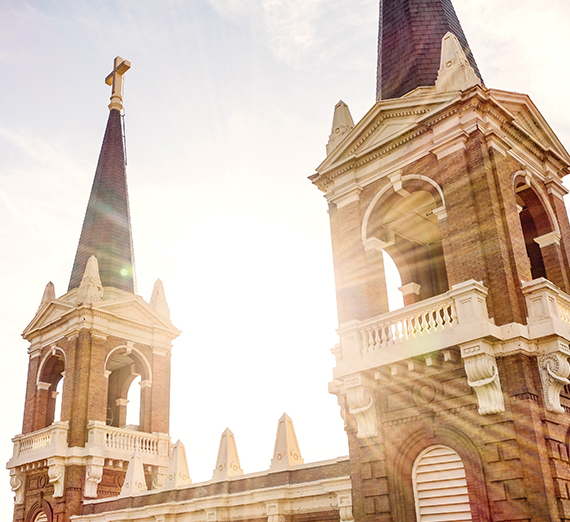University Statement on the Death of George Floyd

Dear Gonzaga Community:
Like so many of you watching the national news last evening and the days before, we at Gonzaga, and I personally, are very affected and troubled by the graphic images of George Floyd being traumatized, enduring physical harm at the hands of those assigned to protect people, and then dying in their custody. It is but the latest in a series of recent such incidents and I share the outrage expressed by protestors, so many of them our students' age, protesting in multiple cities across the country.
Gonzaga University is a community that has chosen to focus on and pay attention to systematic injustice. Our work is aided and supported by colleagues in areas such as the Office of Diversity, Equity and Inclusion (DEI) and the Unity Multicultural Education Center (UMEC) within Student Development. We are blessed to have entities such as the Institute for Hate Studies, and the Center for Human and Civil Rights, that track and interpret events, like the murder of George Floyd – an action whose impact may well result in increased expressions of prejudice, racism, and bias. The work of these Institutes and Centers, as well as the courses and pedagogies developed in the Department of Critical Race and Ethnic Studies (CRES), Native American Studies, and in many other departments, from History to Women's and Gender Studies, aligns with and animates our mission to educate students for and with others.
At this critical juncture in US racial and ethnic history, it is important to remember that a founder of the Jesuits, Saint Ignatius of Loyola, was a member of a group now minoritized in their nation; a respect for difference is also at the heart of many Ignatian teachings. The fear equated with differences based on color, in this country, is profound, and has a particular pattern of having been codified and institutionalized in law, in practice, and in social and cultural values; it is a fear worthy of acknowledgment and of analysis. We are called, as is stated sometimes in common vernacular, to "own" this history as much as we obligate ourselves to resisting, interpreting, and evaluating behaviors borne out of racialized pasts.
The Gonzaga community joins with so many others in offering our condolences to the family of George Floyd, his brothers and sister who have shared their grief publicly, and share as well our concern for protesters displaying their grief and anger in ways that have also claimed lives and injuries. We are all cognizant of the impact destruction of property has on cities, in neighborhoods, and on the business owners who are in the path of the outrage expressed. While it is never appropriate to set fires, loot, or respond in physically injurious ways to officers of the law and to first responders, we have witnessed this level of emotion and destruction repeatedly across our nation’s history. Applicable to far too many events in the racial past of this country is what Dr. Martin Luther King named in one of his many exacting speeches: "What is it that America has failed to hear?" Increased militarization to "restore" order has its own problematic history; and as many seek a way to express their emotions or politics about George Floyd's death, and that of so many others before him, as a Jesuit, Catholic, and humanistic university, we can offer prayers, but we can do even more: to practice a faith that does justice, whether we endorse or support, or not, what is happening right now in this country's cities. I remember as a child in rural New Mexico hearing MLK's speech before the Los Angeles Democratic Club – to paraphrase but deeply etched in my memory: how the hot, burning fires of one summer, we must remember, followed a cold, cold winter of despair. It well may be that this, too, is what we are seeing before us, amplified in contexts of self-isolation or social distancing, and with far fewer visible outlets to mark poverty, anguish, and need.
As our university president stated in the context of the racial violence in Charlottesville, Gonzaga stands in solidarity with all those who oppose hate, who oppose prejudice, who oppose racism – and daily affirms its commitment to working proactively and constructively to create a culture and society where the dignity of each and every individual is treasured, honored, and celebrated, and the words “equity,” “inclusivity,” and “justice” are truly hallmarks of our way of proceeding.
Even as our own emotions are likely running high, may we listen carefully to, and help, one another, in this difficult national moment.
Black lives matter,
Deena J. González, Ph.D.
Provost and Senior Vice President
